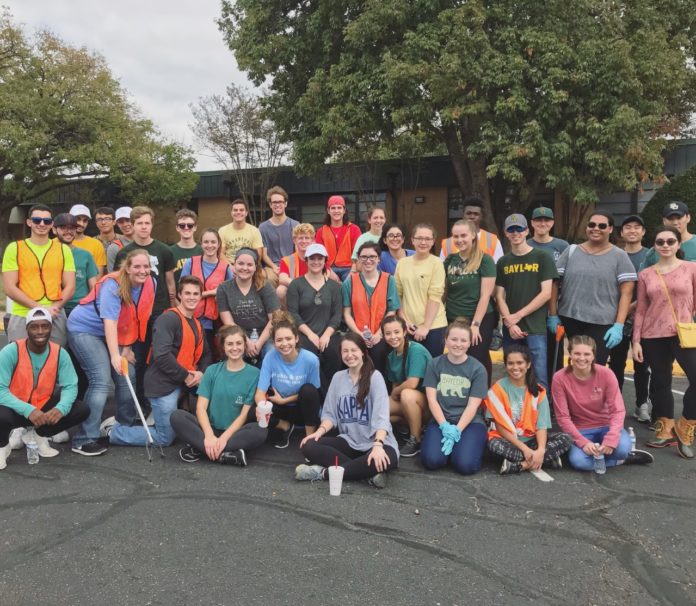
By Madalyn Watson | Staff Writer
On Tuesday, Feb. 12, Baylor University’s Medical Ethics Discussion Society (BU M.E.D.S.) will host their first fundraiser of the semester at the Raising Cane’s at 801 J H Kultgen Expy. From 5 to 9 p.m. Cane’s will donate 15 percent of the proceeds to the philanthropies supported by BU M.E.D.S.
According to BU M.E.D.S, they are a community that loves to discuss medical ethics in small group settings. The organization also brings in speakers who experience ethical issues in their professional careers.
Tulsa, Okla. sophomore Dylan Gould, the fundraising chair for BU M.E.D.S., said that the organization supports these philanthropies through service as well as fundraisers.
“It’s incredibly rewarding because we get to see firsthand the impact that we’re making on these people,” Gould said.
Some of the local organizations supported by BU M.E.D.S. are Mosaic, Mission Waco and Caritas of Waco.
“It’s ethically just that we give back to our community, and that’s one thing BU M.E.D.S. is all about,” Gould said.
Members of BU M.E.D.S. serve these organizations around the Waco community multiple times a week. BU M.E.D.S. works with Mission Waco from 4:45 to 6:15 p.m. on Mondays and Tuesdays, Caritas of Waco from 2:40 to 4 p.m. on Wednesdays and Mosaic from 1:45 to 3:15 p.m. on Fridays.
“Although medical ethics is our primary focus, service is something that is very integral to what our society is about,” Gould said.
The six aspects of the organization include: discussions, speakers, socials and mentoring, as well as service and fundraisers, according to their website.
They hold weekly meetings dedicated to discussing ethical dilemmas on Thursday evenings in the Baylor Science Building (BSB).
Kingwood senior Savannah Cruz, the president of BU M.E.D.S., said the discussions inspire students to start thinking about how they would handle ethically gray situations in the medical field.
“The purpose of BU M.E.D.S. is to give people that want to become health care professionals, and even people that are just interested, the ability to put themselves in a situation and think about what they would do,” Cruz said.
Cruz said medical ethics is not taught in classroom settings during undergraduate or medical school because it is not something that can be taught.
“It’s not something that is easily teachable. It’s more of like something you have to experience,” Cruz said.
BU M.E.D.S. addresses issues many students may not have to think about until they are working with patients in very frantic and dire situations.
“There’s a lot of different philosophies on ethics. There’s a lot of different ideas about what is morally right or wrong. There’s a whole conglomerate — these very distinct types of things that are affecting ethics,” Cruz said.
The discussion format allows students to learn from each other’s experiences and opinions.
“I think my favorite one of our discussions that we have ever done was over physician-assisted suicide. Not because I was an expert on the subject, but because I wasn’t,” Gould said.
Willow Park junior Tacker Patton, the discussions chair of BU M.E.D.S., re-addressed the four pillars of medical ethics during the weekly discussion meeting on Feb. 9.
Patton said that the four pillars of medical ethics autonomy, beneficence, non-maleficence and justice. This framework of the four pillars originated from the book, “Principles of Biomedical Ethics” by Tom Beauchamp and James Childress.
“We try really hard to keep the pillars in mind when we’re talking, but it’s easy to let them slip away,” Cruz said.
During the meeting, members debated several potential scenarios while keeping these four pillars in mind and deciding which pillar triumphs over the others in their personal opinion.
“Sometimes those pillars conflict with each other, so that’s another thing that we talk about. Like, ‘How do you navigate [medical ethics] when your pillars, that you make your decisions off of, end up conflicting with each other?’” Cruz said.
Some of their future discussion topics are organ donations and artificial intelligence in medicine.
Students interested in joining BU M.E.D.S. should follow the steps listed on their website here.





